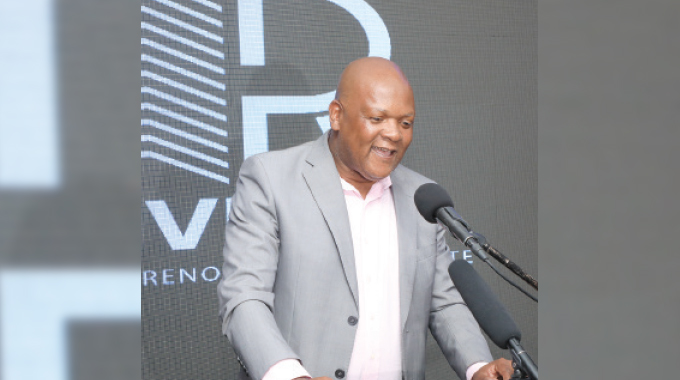Fixed mindsets hinder progress
fishing actually gets around to doing it.
I normally go fishing with my friend Alistair on Saturdays. It all started as a mild complaint about my using our family car to go fishing every weekend while leaving my wife and children without anything to use to go to the shops with. As a result I stopped using the family car.
I then opted to use a friend’s car and the partnership worked for three months but another problem arose.
My friend started working over the weekends therefore we could not continue using his car for weekend expeditions.
Alistair introduced to me to another person (Never) who seemed keen on fishing. However, after two outings my new acquintant advised me that he and his wife had mutually agreed that Saturday was going to be set aside as a family day therefore he was dropping the whole game of fishing.
I spent the next seven consecutive weekends at home. My game was slowly dying and I even convinced myself that it was not worth it after all.
I started seeing the advantages of staying at home and having enough time to watch my favourite team Chelsea playing.
I went to the extent of finding out the hazards of fishing. It became very real to me that I was no longer going to fish again but I think this was merely compensatory behaviour.
But deep down in my heart I wasn’t fulfilled. I missed something, which was important to me.
I was in the doldrums until a workmate noticed that I was not myself and he asked if he could assist in solving my problem.
I gladly accepted and duly advised him of my problem after which he responded by pointing out something that seemed obvious to him but not to me.
He said: “I wonder why you are failing to go for fishing yet 90 percent of people who play the sport use public transport.
“Do you need a car to enable you to go fishing? Are you suffering from false affluence or mental failure?”
I could not answer the two questions. In other places such as Britain or Scotland people go for fishing using trains. In our rural areas and many farming communities people go fishing on foot or by bicycle.
My mind came alive again. There are so many possibilities, which can enable one to go for fishing.
In any case the most important facilitators to successful fishing are the dam which provides the fish, the fishing equipment which enables you to catch and the fisherman.
Transport is the least of worries in the fisherman’s world. It can be arranged somehow.
It can become a bigger worry than not having the tool set (fishing equipment) if the fisherman has a mind block.
Our own mindsets can collaborate in erecting barriers, which inhibit our capacity to fulfil our goals.
Something struck my mind. We fail most of the time because we do not exhaust most of the options available to us.
We quickly resign ourselves to failure when the task is doable. I paid dearly due to my mind block. Mind blocks tend to reinforce the perception of a problem.
We condition our minds to believe in certain things as real, fixed, standard, professional etc.
These beliefs generate norms and standardise the norms. This is a disease, which is really common among adults not in children.
Therefore if you are not putting issues in the right context, minor problems can derail important programmes.
The absence of a car to take me to the dam was a real barrier but not threatening to the overall project (Fishing expedition). What was happening to me can simply be referred to as obstacles.
What are obstacles?
Webster M defines obstacle as a thing that blocks one’s way or prevents or hinders progress. Obstacles come in various forms such as:
l Obstruction by competitors
l High Barriers to new entry in specialised industries
l Regulatory authorities’ by laws which restricts business activities
l Antiquated equipment, which often breaks down.
l Workmates
l Lack of ambition/enthusiasm.
Alistair once told me that if you decide to look for obstacles you would find them.
The more you focus on them the more they become scary. Existing companies continually design strategies that make it harder for new players to enter their industry.
In the beverages industry, new players are required to purchase refrigerators for distributors and retailers.
Retailers are not allowed to use a competitor’s fridge to stock products. Purchasing refrigerators might be a huge capital expenditure for a new small player.
This creates an uneven playing ground for new small players or for under capitalised companies.
Another new form of discrimination to new players is professional qualifications.
This is more pronounced in the Information Technology Industry and Motor trade.
For an Academy to run either Microsoft or Cisco courses the college needs to demonstrate that it has among its staff Microsoft or Cisco certified staff.
The same can be said if a company wants a franchise to sell and service Toyota, Mercedes etc.
These requirements are forms of obstacles.
Most entrepreneurs would testify that regulatory authorities normally hinder business progress.
Not that most entrepreneurs do not want to comply but at times the regulatory authorities (city councils and relevant industry’s compliance agencies) make it almost impossible to comply.
Though they have laid down by-laws different departments within the compliance agencies do not uniformly interpret them.
More often there are manipulated to suit various department needs/officers’ needs.
When the US army was complaining about ammunition, inadequate and outdated equipment in Afghanistan, Donald Rumsfeld US Defence Secretary (then) – directed the soldiers to work with the ammunition they had.
Companies complain of obsolete machinery, lack of markets, unfair trade practices and so on. Sometimes they fail to improvise.
To make do with what is available. To built up towards their set goals beginning with what they have in terms of assets and markets.
l The writer is a managing consultant at CLC Training International. E-mail [email protected].









Comments